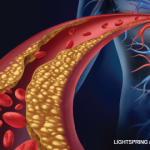NEW YORK (Reuters Health)—Ibuprofen boosts blood pressure (BP) more than naproxen or celecoxib in patients who take non-steroidal anti-inflammatory drugs (NSAIDs) to treat arthritis, according to a new substudy from the PRECISION trial.
“These drugs are different with regard to BP, and ibuprofen is the worst,” Dr. Frank Ruschitzka of University Hospital Zurich in Switzerland, the study’s first author, tells Reuters Health.
In 2015, the U.S. Food and Drug Administration strengthened its warning on the cardiovascular risks of over-the-counter NSAIDs and cyclooxygenase 2 (COX-2) inhibitors, Dr. Ruschitzka and his team note in their Aug. 28 online report in the European Heart Journal.1 Clinicians face difficult decisions on how to treat patients who take NSAIDs regularly to treat arthritis, they add, many of whom also have hypertension.
The PRECISION randomized trial, funded by celecoxib maker Pfizer and mandated by the FDA, compared the three drugs in patients with arthritis who either had cardiovascular disease or were at increased risk. Published in the New England Journal of Medicine in 2016, PRECISION showed that celecoxib’s cardiovascular safety was non-inferior to that of naproxen or ibuprofen.
In the new PRECISION prespecified substudy, 444 arthritis patients underwent 24-hour ambulatory BP monitoring at baseline and after four months on celecoxib (100z–200 mg twice daily), ibuprofen (600–800 mg three times daily) or naproxen (375–500 mg twice daily). Mean baseline BP was 125/75 mmHg and very similar among the groups.
Mean 24-hour systolic BP increased by 3.7 mmHg in ibuprofen users and by 1.6 mmHg in naproxen users, and it decreased by 0.3 mmHg in celecoxib users. Among people with normal baseline BP, hypertension developed in significantly more ibuprofen users (23.2%) than users of naproxen (19.0%) or celecoxib (10.3%).
COX-2 inhibitors don’t carry the risk of gastrointestinal side effects associated with traditional NSAIDs, but an increased risk of heart failure associated with Vioxx (rofecoxib) led to concerns about its cardiovascular effects. Merck withdrew Vioxx from the market in 2004. Research done at that time found no evidence for increased cardiovascular risk with celecoxib, Dr. William White of UConn Health in Farmington, Conn., an expert on NSAIDs’ cardiovascular effects, tells Reuters Health.
“The ambulatory [BP] study, which is in a very small percentage of the patients in PRECISION, the findings were completely predictable based on all of the other studies that have been done,” Dr. White says.
Nevertheless, the differences are likely to be news for young doctors, who may not be familiar with that research, he adds.



